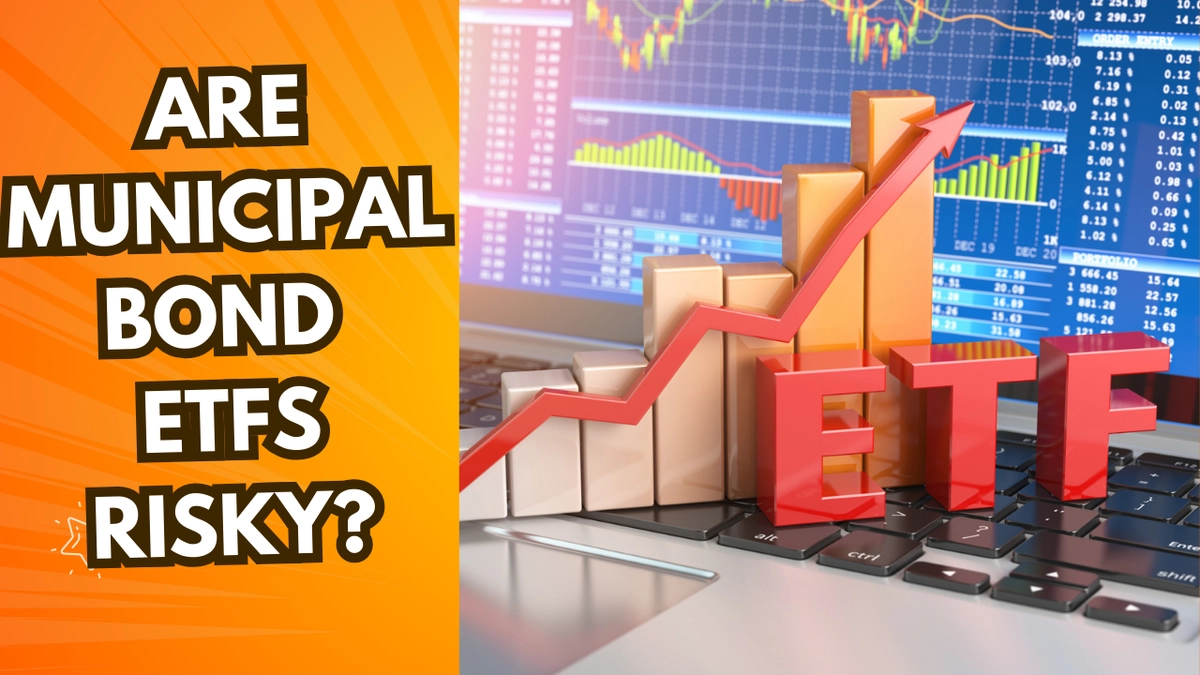When planning for retirement, it’s essential to focus on investments that offer both stability and predictable income. One of the most compelling options in the world of fixed-income investing is municipal bond ETFs. These exchange-traded funds provide retirees with an efficient way to generate tax-free income, reduce risk, and maintain flexibility in their portfolios. In this article, we will explore why municipal bond ETFs for retirement benefits can be a game-changer for those looking to secure a reliable income stream in their retirement years.
Why Municipal Bond ETFs for Retirement Benefits: Key Advantages
Why municipal bond ETFs for retirement benefits is a question many retirees are starting to ask as they seek ways to diversify their portfolios and ensure a consistent income. Municipal bond ETFs hold a collection of bonds issued by local governments or municipalities, often used to fund public projects like infrastructure, schools, and hospitals. These bonds are particularly attractive because their interest payments are typically exempt from federal income taxes, and sometimes state and local taxes as well.
For retirees in higher tax brackets, these tax advantages can significantly boost after-tax returns, making municipal bond ETFs a powerful tool for managing retirement income.
Tax-Free Income: A Significant Advantage
One of the most important reasons why municipal bond ETFs for retirement benefits are so popular is the tax-exempt nature of the income generated. Unlike traditional bonds or dividend-paying stocks, the interest earned from municipal bonds is often exempt from federal income taxes. For retirees, especially those in higher tax brackets, this can provide a substantial tax advantage, helping to keep more of the income for living expenses or reinvestment.
Additionally, for residents of certain states, municipal bonds issued within the same state can be exempt from both state and federal taxes, adding another layer of tax savings. This makes municipal bond ETFs particularly appealing for retirees who are focused on maximizing their income while minimizing their tax obligations.
Stable Income with Low Risk
Why municipal bond ETFs for retirement benefits are increasingly favored also lies in their ability to provide steady, predictable income. Municipal bonds generally offer regular interest payments, which can be used by retirees to cover daily living expenses. Since these payments are typically made on a quarterly or semi-annual basis, retirees can count on a reliable cash flow.
Municipal bonds are also considered low-risk investments, especially those issued by highly rated municipalities. The low-risk nature of municipal bonds makes them a good fit for retirees who are typically risk-averse and focused on capital preservation rather than high returns. Furthermore, municipal bond ETFs provide diversification, which spreads risk across many different issuers, thus reducing the impact of any one issuer defaulting.

Liquidity and Flexibility for Retirees
Unlike individual municipal bonds, which can be difficult to sell quickly, municipal bond ETFs trade on major exchanges just like stocks. This makes them much more liquid and flexible, allowing retirees to buy and sell shares as needed. Whether it’s for rebalancing the portfolio or accessing cash for an unexpected expense, municipal bond ETFs offer the ability to quickly adjust holdings without the constraints of the bond market’s illiquidity.
This liquidity is a major advantage for retirees who may need to tap into their investments at short notice, providing more peace of mind and financial flexibility.
Some well-known municipal bond ETFs include:
Diversification: Spreading Risk Across Multiple Issuers
Another reason why municipal bond ETFs for retirement benefits are an excellent choice is their ability to offer instant diversification. When you buy a municipal bond ETF, you’re effectively buying exposure to a broad portfolio of municipal bonds from various issuers, ranging from cities and counties to schools and hospitals. This diversification helps mitigate the risk of any single bond defaulting, as the ETF’s performance is not dependent on the success or failure of one issuer.
Moreover, municipal bonds come in various types and durations, which means retirees can choose ETFs that align with their risk tolerance and income needs. Whether it’s short-term, investment-grade bonds or higher-yield, riskier bonds, there are municipal bond ETFs tailored for different investment strategies.
Lower Costs and Higher Efficiency
Municipal bond ETFs typically have lower expense ratios compared to actively managed mutual funds, making them a cost-effective investment choice. Since these ETFs track broad municipal bond indices, they do not require extensive active management, which keeps fees low. For retirees who are mindful of costs and want to maximize their income, the low-cost nature of municipal bond ETFs is a significant benefit.
Additionally, ETFs are generally more tax-efficient than mutual funds, further enhancing the appeal for retirees seeking to optimize their tax situation.
Long-Term Capital Preservation
For retirees, capital preservation is often just as important as generating income. Municipal bonds tend to be safer than corporate bonds or stocks, especially those issued by highly rated governments. Municipal bond ETFs, by diversifying across many different issuers, offer added protection from individual defaults. This makes them an attractive option for retirees who want to preserve their capital while still earning reliable income.
Moreover, because municipal bond ETFs are traded on exchanges, retirees have the option to liquidate their holdings easily if they need to access cash without waiting for individual bonds to mature.
Conclusion: Why Municipal Bond ETFs for Retirement Benefits?
In conclusion, why municipal bond ETFs for retirement benefits is an increasingly relevant question for many retirees seeking stability, income, and tax efficiency. These ETFs provide an effective solution for retirees who want tax-free income, liquidity, diversification, and low risk in their portfolios. The ability to generate steady cash flow while preserving capital and minimizing tax liability makes municipal bond ETFs an essential tool for retirement planning.
With their tax advantages, steady returns, and diversification benefits, municipal bond ETFs are well-suited for retirees who need a reliable source of income and wish to reduce the risks associated with their portfolios. As more retirees look for safe, tax-efficient investments, municipal bond ETFs will continue to play a significant role in the retirement planning landscape.
Disadvantages of Municipal Bonds
Do municipal bonds carry credit risk?
Yes, municipal bonds are subject to credit risk. While municipal bonds are generally considered safe, they are not risk-free. If the issuer (e.g., a city, county, or state) experiences financial difficulties, it may default on its bond payments, leading to losses for investors.
Are municipal bonds affected by interest rate risk?
Yes, municipal bonds are sensitive to interest rate changes. When interest rates rise, the value of existing municipal bonds tends to fall, which can lead to capital losses if the bonds are sold before maturity.
Can municipal bonds be affected by liquidity risk?
Yes, municipal bonds can face liquidity risk. Some municipal bonds, especially those from smaller municipalities or those with lower credit ratings, may not be easy to buy or sell quickly without affecting their price.









4 thoughts on “Why Municipal Bond ETFs for Retirement Benefits?”